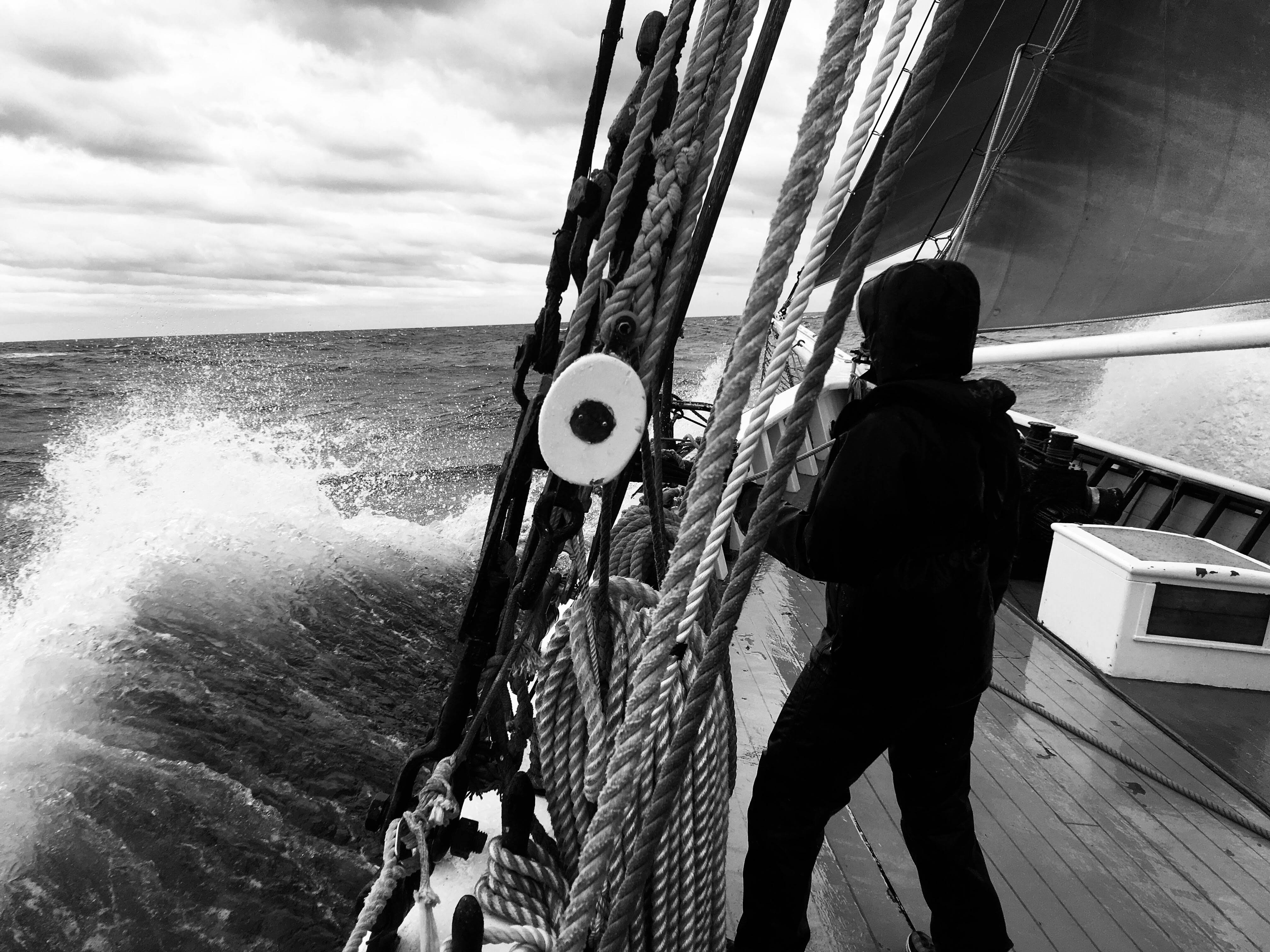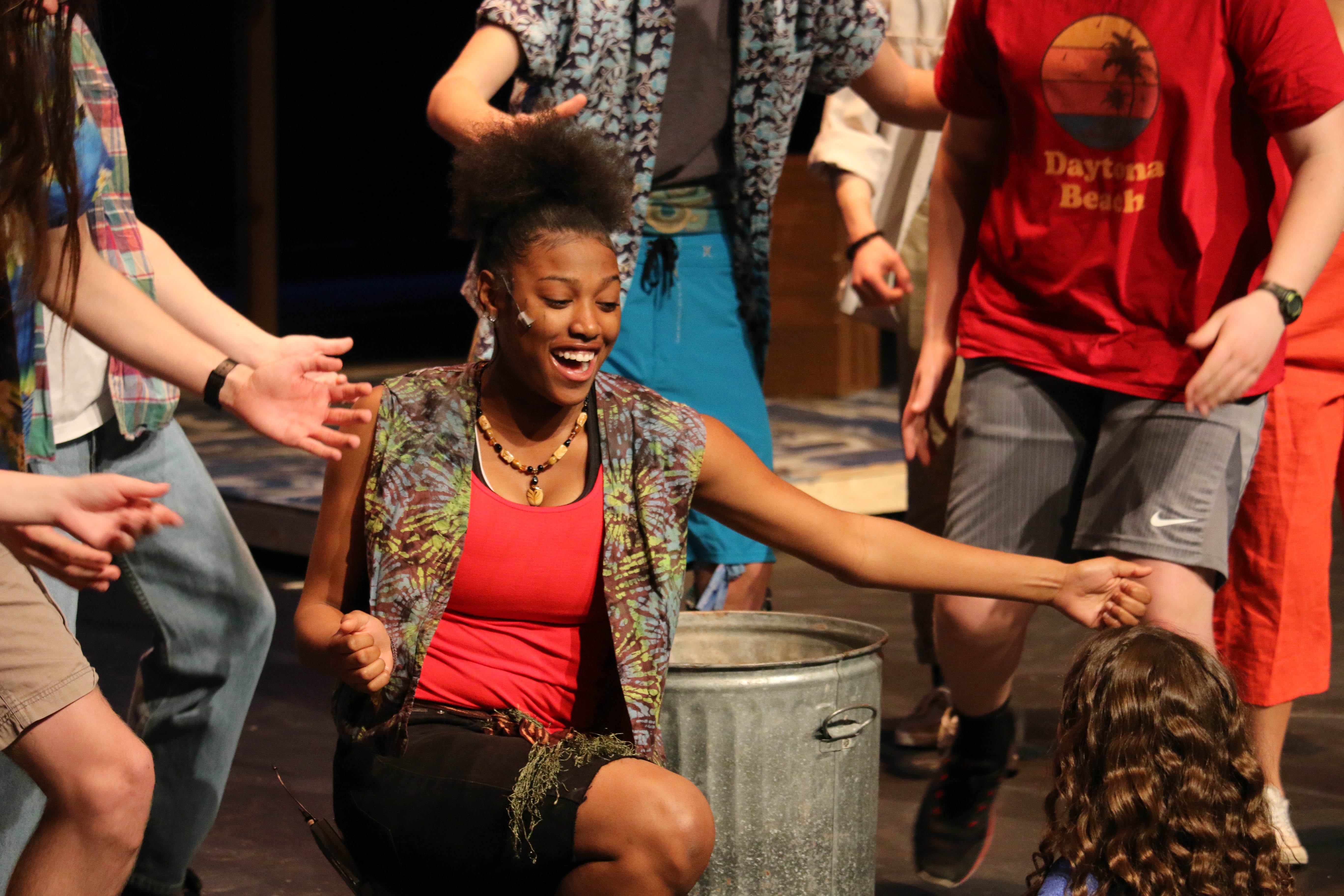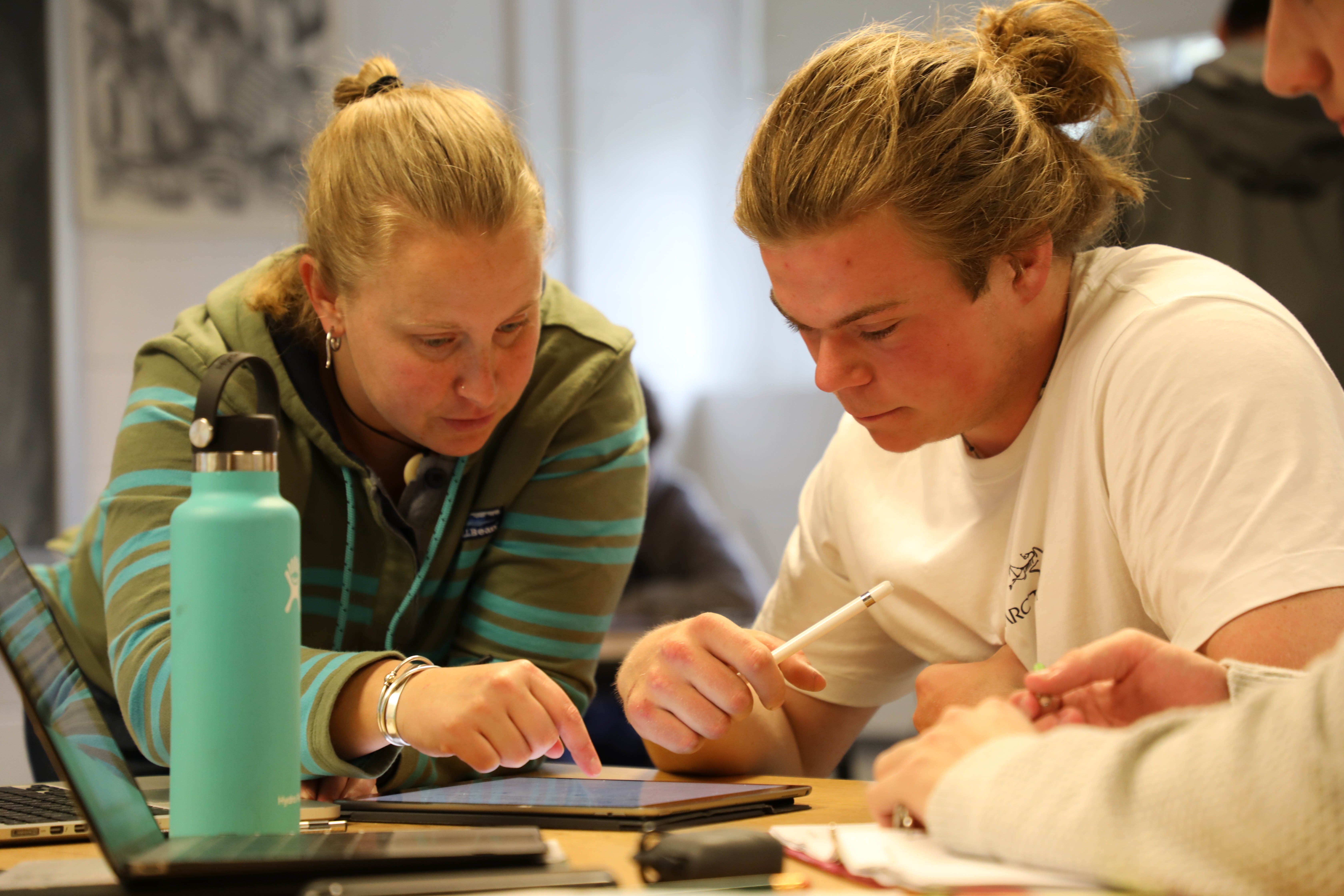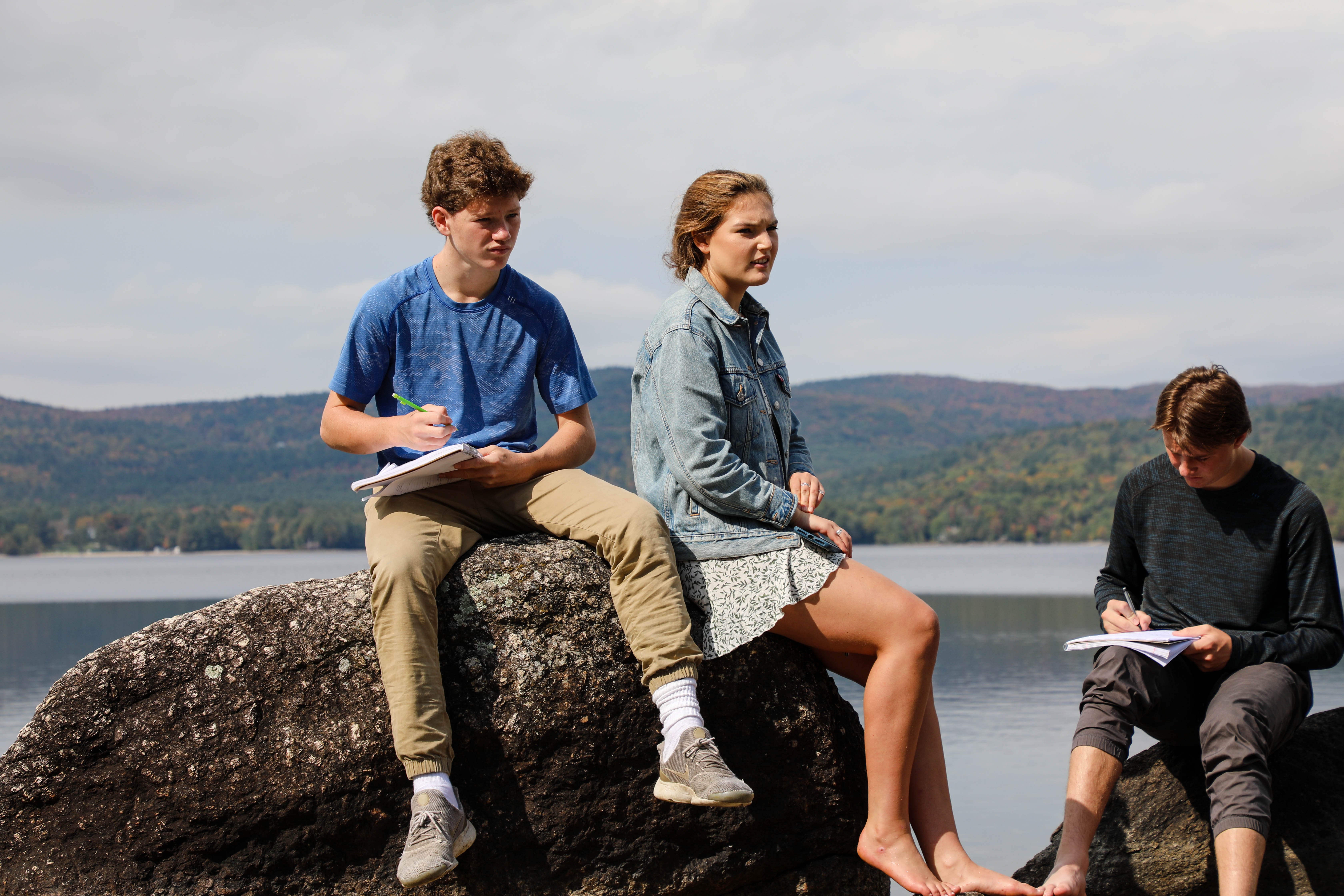Irrational fears are often rooted in an experience, a moment in time when our innocence is lost or our perspective shifts drastically. I’m terrified of sailing. It is an irrational fear born of a family sail aboard our 17 foot day sailer as a young child. I don’t remember the specifics, but simply recall the sensation of lost control, of tipping on edge, of feeling helpless. For years after my father worked to help me overcome this fear, attempting to teach me how to sail, how to manage gusts of wind, explaining ad nauseam there is always an escape plan in an emergency as long as you are prepared for it.

He reassured me that if we ever lose control, our boat will turn itself into the wind. It will take waves from the bow, as it was designed, cut through the churn and steady us. Knowing we can always steer into the wind, reduce the noise and recenter ourselves, is a lesson that applies well beyond the cockpit of my family's 17 foot sailboat. Sometimes we simply need to release the mainsheet, to find a different tack, and reorient in the direction our boats were made to sail.

Boarding schools are facing the same type of disruption our small boat faced on those windy days on the lake. The waves (a decline in international student applications, tuition rates outpacing wages and inflation, national demographic shifts leading to a decline in domestic high/full-pay families interested in boarding school) our schools are facing are real. We can try to hold our tack against a shifting wind. We can keep allowing the waves to batter the side of our boat. Or we can adjust our course, recenter ourselves around our core competencies and create a vision for our future that embraces the changing wind and increased chop.

Disruption and vision: they are two forces that often pull our schools in opposite directions. We work with our Board of Trustees, faculty, staff, and students to develop a vision, a road map for the future, where we design and implement the best version of ourselves. At the same time, disruptions in the market pull us in the opposite direction. We compromise vision as we allow the churn around us to knock us off course. We react to each disruption rather than doing the hard work of understanding how the disruption intersects with our vision.

A recent ISM publication warned disruptive change may be coming to the boarding school world sooner than we think. The dramatic disruptions in the higher education market has begun to trickle down to boarding schools. The article discusses how the core of the independent school value proposition is under threat as society realigns its values. Academic rigor is antithetical to deep, durable learning and student well-being. Technology may have an adverse impact on student learning and well-being, not a positive one. Class sizes can’t get any smaller at independent schools, and what we think is “special” about our school is remarkably similar to other great schools out there. We are not as unique as we think, and a read through the 2018-2019 NAIS Trendbook issues a mandate to schools to keep evolving. And yet, in the midst of these challenges, we know the opportunity we have at Proctor to impact young people’s lives is real. The model works. The intersection of integrated academic support, off-campus programs, and experiential learning within a supportive learning environment works.

As we embark on the beginning stages of a strategic planning process with our faculty, staff, students, and Board of Trustees, we see the shifting independent school landscape as a tremendous opportunity for Proctor. The good work of self-reflection, analysis, and developing strategic initiatives will set a course for Proctor that will help the bow of our ship cut through unexpected disruptions, while allowing us to remain committed to our educational model, a model we believe provides an optimal environment for adolescent learning to take place.








